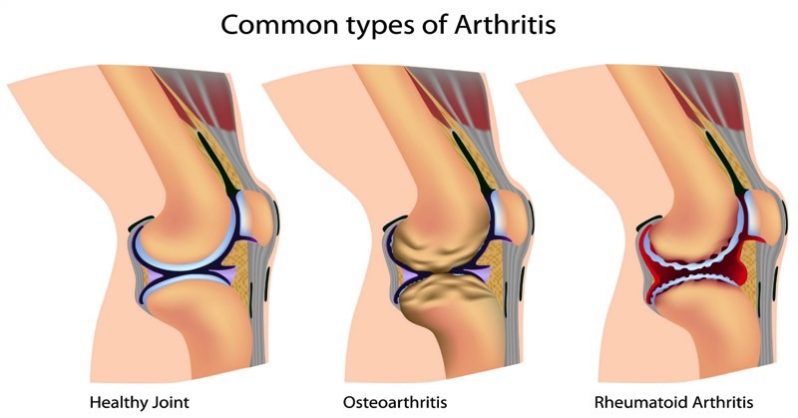Arthritis is a common condition that affects millions of people around the world. It causes joint inflammation and stiffness, leading to pain and limited mobility. While medical treatments and medications can help manage the symptoms, adopting an anti-inflammatory diet can be a powerful tool in preventing arthritis flare-ups and alleviating the discomfort associated with the condition. This is everything you should know about the connection between diet and arthritis and how to manage both.
Understanding Arthritis

Arthritis is a term used to describe a wide range of conditions that affect the joints. The most common types of arthritis include osteoarthritis, rheumatoid arthritis, and psoriatic arthritis. Osteoarthritis is caused by wear and tear on the joints over time, resulting in the breakdown of cartilage. Rheumatoid arthritis, on the other hand, is an autoimmune disease where the immune system attacks the body’s own tissues, leading to joint inflammation. Psoriatic arthritis is a form of arthritis that often accompanies psoriasis, a skin condition. (1)
Regardless of the type, all forms of arthritis are characterized by pain, swelling, and joint stiffness. Arthritis can affect any joint in the body, but it most commonly affects the hands, knees, hips, and spine. The symptoms of arthritis can vary depending on the type and severity of the condition. For example, osteoarthritis often causes pain that is worse in the morning or after a period of inactivity. Rheumatoid arthritis can cause fatigue and weight loss as well as joint pain.
The Connection Between Diet and Arthritis

While arthritis is primarily a joint-related condition, it can also be influenced by various systemic factors, including diet. Research has shown that certain foods can contribute to inflammation in the body, worsening arthritis symptoms. On the other hand, incorporating an anti-inflammatory diet can help reduce inflammation and prevent flare-ups. (2)
An anti-inflammatory diet typically includes foods that are rich in omega-3 fatty acids, antioxidants, and other nutrients that have been shown to have anti-inflammatory properties. It also involves avoiding or limiting foods that tend to promote inflammation, such as processed foods, refined sugars, and saturated fats. (3)
Read More: 10 Arthritis Exercises That Will Help Sore, Swollen, Cracking Joints Go Away
10 Ways to Prevent Arthritis Flare-Ups

No matter what kind of arthritis you have, it is important that you work with your doctor and health care providers to come up with a treatment plan that works for you. This will likely include a combination of medications, diet, physiotherapy, and other physical activity to help you move and feel better. Of course, the goal of this plan is to prevent flare-ups and improve quality of life. These are 10 of the likely lifestyle interventions that your medical team will recommend to you (4):
1. Follow an Anti-Inflammatory Diet

Incorporate foods such as fatty fish (salmon, sardines), leafy greens, berries, nuts, and seeds into your meals. These foods are known for their anti-inflammatory properties and can help reduce the risk of flare-ups.
2. Maintain a Healthy Weight

Excess weight places additional stress on the joints, increasing the risk of arthritis flare-ups. By maintaining a healthy weight through a balanced diet and regular exercise, you can reduce the strain on your joints.
3. Stay Active

Regular physical activity can help strengthen the muscles around the joints, improving their stability and reducing the risk of flare-ups. Low-impact exercises like swimming, yoga, or walking are particularly beneficial.
4. Practice Range-of-Motion Exercises

Incorporating exercises that focus on maintaining joint flexibility can help prevent stiffness and reduce the risk of flare-ups. Examples include gentle stretching, yoga, and tai chi.
Read More: The Cause Of Autoimmune Diseases Like Rheumatoid Arthritis Could Be In Your Fridge
5. Avoid Trigger Foods

Certain foods are known to trigger inflammation in some individuals. Common culprits include processed foods, sugary snacks, red meat, and high-fat dairy products. Identify any trigger foods for yourself and avoid them to reduce the risk of flare-ups.
6. Limit Alcohol Consumption

Alcohol can contribute to inflammation in the body, worsening arthritis symptoms. Limit your alcohol intake or avoid it altogether to reduce the risk of flare-ups.
7. Quit Smoking

Smoking has been linked to an increased risk of developing rheumatoid arthritis and can exacerbate symptoms. Quitting smoking not only benefits your overall health but can also help prevent arthritis flare-ups.
8. Get Enough Sleep

Lack of sleep can contribute to increased inflammation in the body. Prioritize getting quality sleep, aiming for 7-8 hours each night, to reduce the risk of flare-ups.
9. Manage Stress

Stress can worsen inflammation and trigger arthritis flare-ups. Incorporate stress management techniques such as meditation, deep breathing exercises, or engaging in hobbies to keep stress levels in check.
10. Seek Professional Guidance

Consulting with a healthcare professional or a registered dietitian can provide personalized advice and guidance in managing your arthritis through diet. They can help you develop an individualized anti-inflammatory meal plan that caters to your specific needs and preferences.
The Bottom Line

While arthritis can be a debilitating condition, adopting an anti-inflammatory diet and making certain lifestyle changes can help prevent flare-ups and manage the symptoms effectively. Incorporating foods with anti-inflammatory properties, maintaining a healthy weight, staying active, and managing stress are just a few of the many ways to reduce your risk of arthritis flare-ups. By taking a proactive approach in caring for your joints, you can improve your quality of life and alleviate the discomfort associated with arthritis.
Read More: 10 Home Remedies for Joint Pain and Arthritis
Sources
- “What Is Arthritis?” Arthritis
- “Managing Rheumatoid Arthritis with Dietary Interventions.” NCBI. Shweta Khanna, Kumar Sagar Jaiswal and Bhawna Gupta. November 2018.
- “Anti-Inflammatory Diet Do’s and Don’ts .” Arthritis
- “Arthritis pain: Do’s and don’ts.” Mayo Clinic

